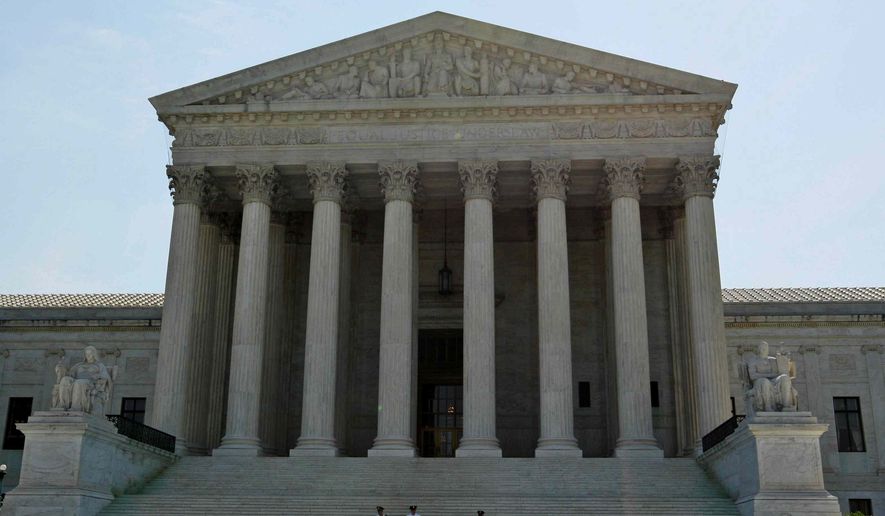In a case closely watched by leading business groups, the Supreme Court ruled Monday that employers can’t refuse to hire job applicants who need special accommodations for their religious beliefs, reviving a lawsuit from a Muslim teenager who didn’t get a job at Abercrombie and Fitch because her headscarf conflicted with the chain’s “look policy.”
In an 8-1 decision, the justices said the burden fell not on Samantha Elauf but on Abercrombie, who “at least suspected” that she wore a headscarf because of religious reasons when she showed up for her job interview, Justice Antonin Scalia said in his opinion for the court.
“An employer may not make an applicant’s religious practice, confirmed or otherwise, a factor in employment decisions,” he wrote.
Reaction to the ruling divided sharply between anti-discrimination groups and those who felt employers now face too many tripwires during the hiring process.
The National Federation of Independent Business said the justices set up a “legal minefield” for employers who might ask job applicants about religious needs and then reject them for other reasons. The American Civil Liberties Union, though, hailed the decision as a “powerful reminder that religious discrimination has no place in the workplace.”
Ms. Elauf wore a traditional headscarf, or hijab, to an interview for a sales position at an Abercrombie Kids store in Tulsa, Oklahoma, in 2008. Although she earned a sufficient rating to be hired, the assistant manager who interviewed her wondered if the headscarf violated Abercrombie’s policy on how its associates, or “models,” should look on the job.
The assistant manager took it up with her district supervisor, who told her not to hire Ms. Elauf.
The Equal Employment Opportunity Commission sued on Ms. Elauf’s behalf and was awarded $20,000 in damages after a federal district court found Abercrombie liable. The U.S. Court of Appeals for the 10th Circuit in Denver reversed and found in favor of the clothier, saying a job applicant must point out his or her need for a religious accommodation.
On Monday, the justices overturned that ruling.
“What’s discrimination, according to the court, is to not offer someone a job because you believe they’re likely to ask for an accommodation,” said Miriam R. Nemetz, an employment law specialist and partner at the Mayer Brown law firm in D.C.
Justice Clarence Thomas was the lone dissenter, arguing “mere application of a neutral policy cannot constitute ’intentional discrimination.’”
EEOC Chair Jenny R. Yang said the ruling will protect workers who seek equal treatment in the workplace but do not want to compromise their religious beliefs.
Abercrombie & Fitch said it is determining its “next steps” as the case heads back to the lower courts, but noted it has granted numerous religious accommodations when requested, including for hijabs.
“A&F remains focused on ensuring the company has an open-minded and tolerant workplace environment for all current and future store associates,” the company said. “We have made significant enhancements to our store associate policies, including the replacement of the ’look policy’ with a new dress code that allows associates to be more individualistic; changed our hiring practices to not consider attractiveness; and changed store associates’ titles from ’Model’ to ’Brand Representative’ to align with their new customer focus.”
Prior to Monday’s ruling, Abercrombie explained to the court that it used its look policy to enhance the in-store experience, a key component of its brand.
“Today’s young customers are the most brand-conscious in history,” the company said in court papers. “Messages that deviate from a brand’s core identity weaken the brand and reduce its value.”
• Tom Howell Jr. can be reached at thowell@washingtontimes.com.




Please read our comment policy before commenting.